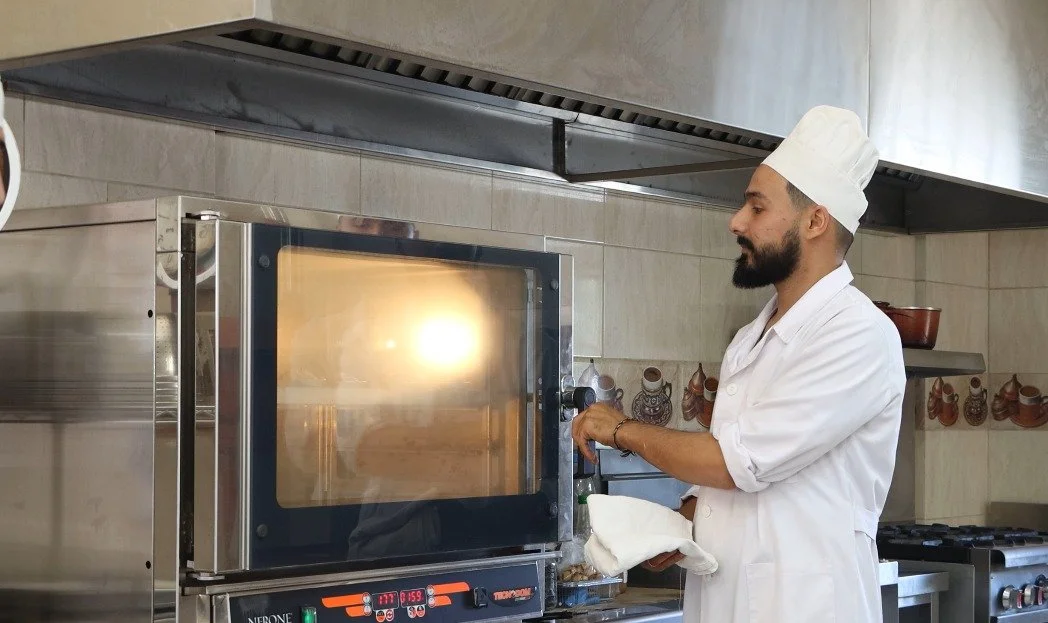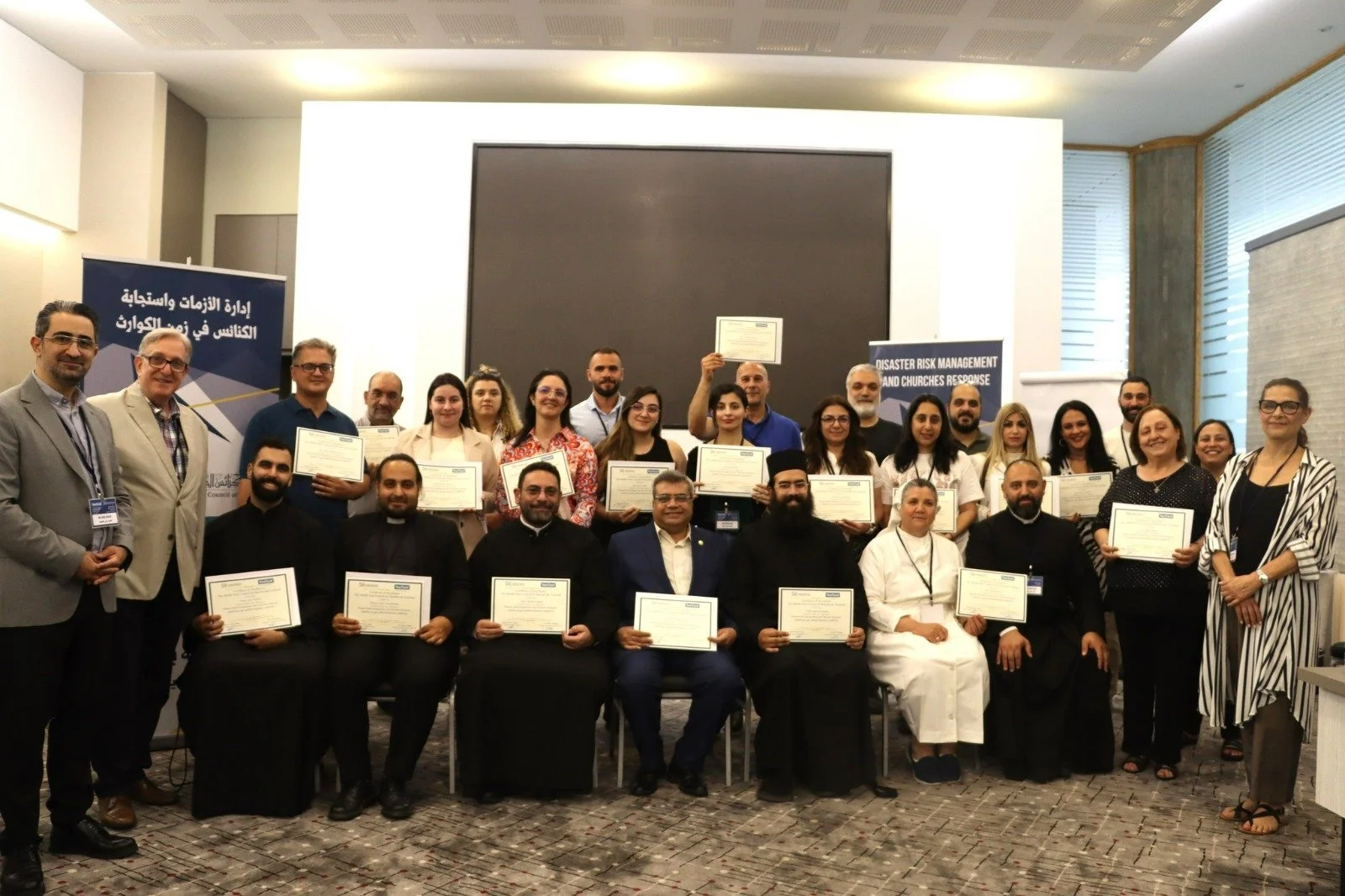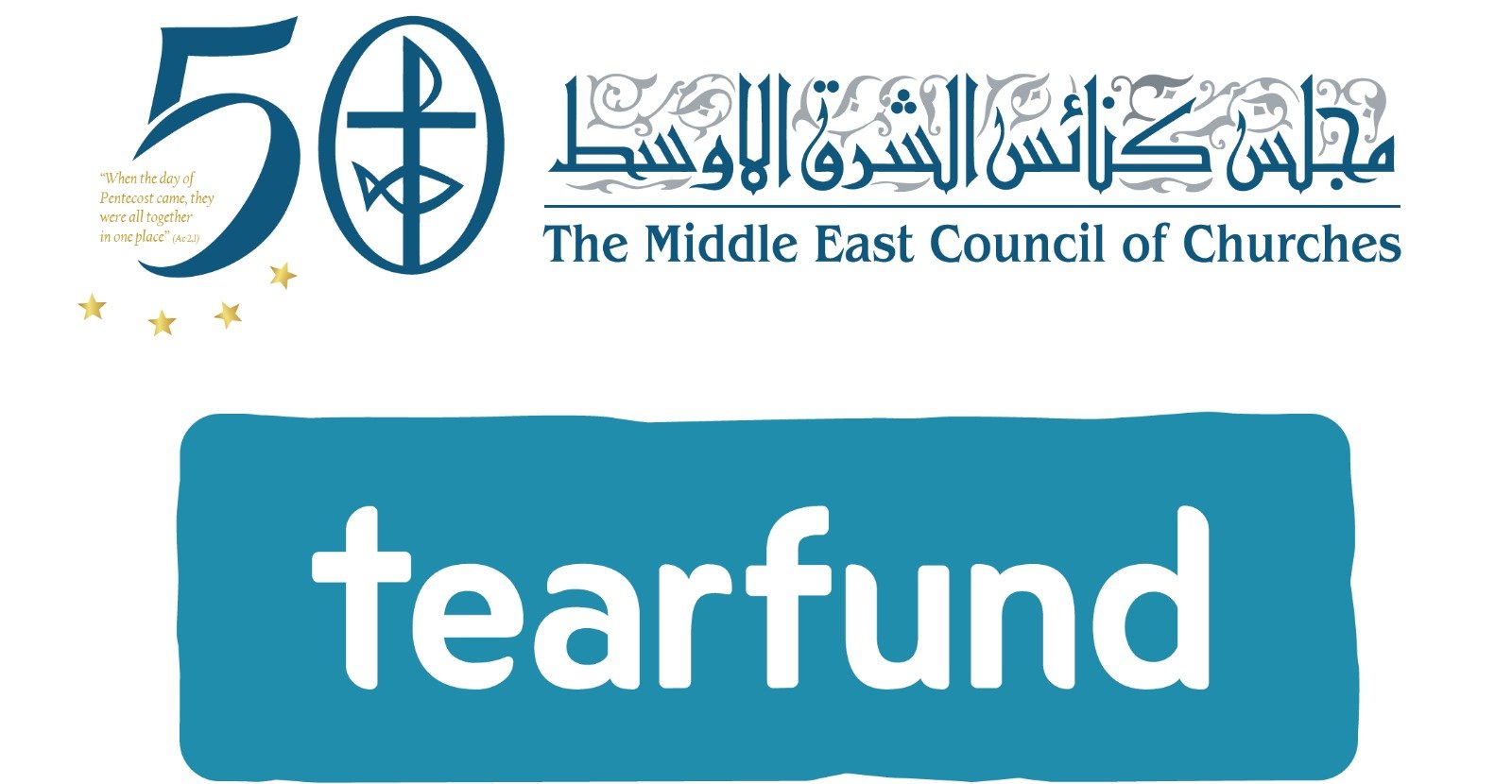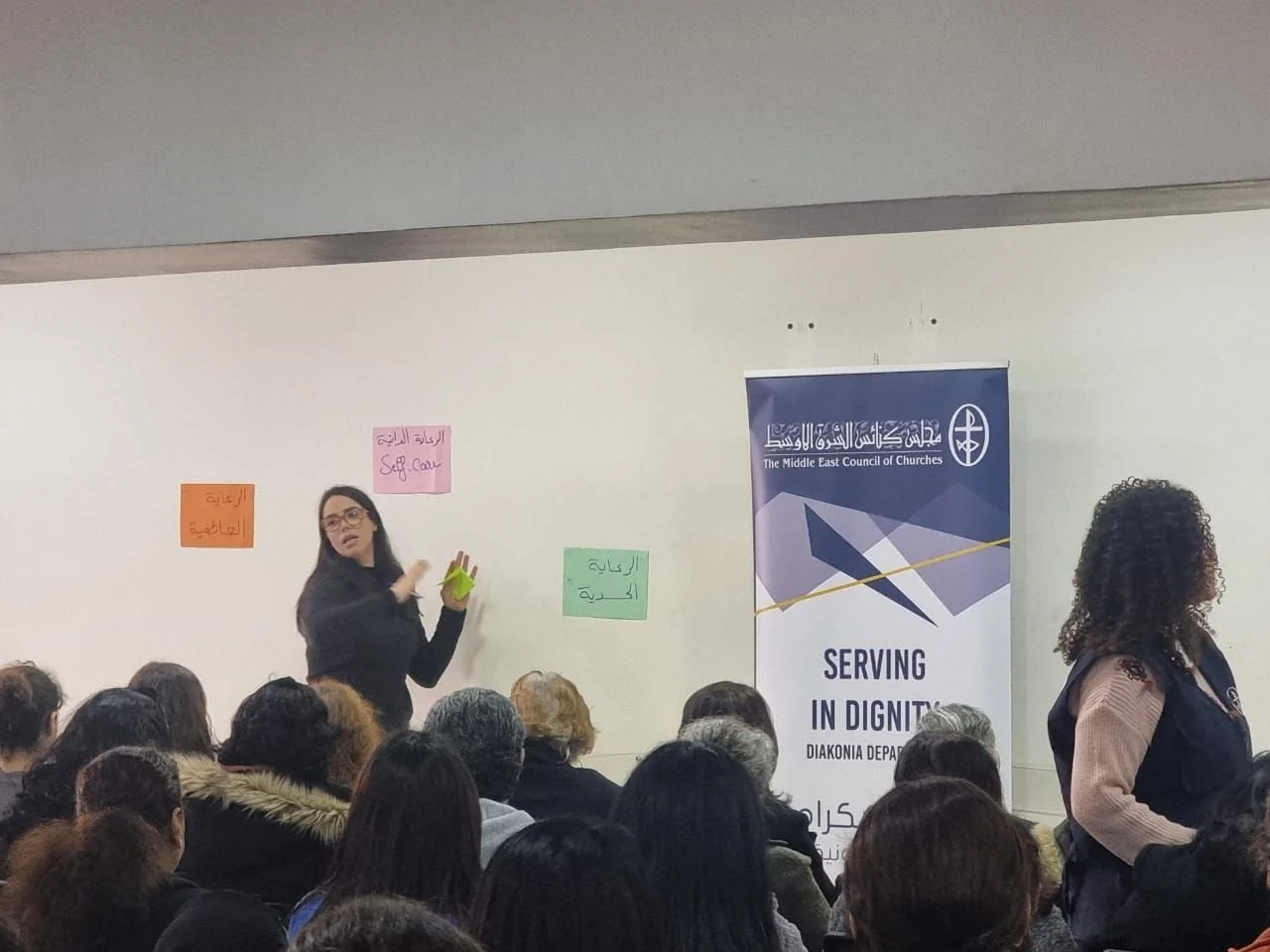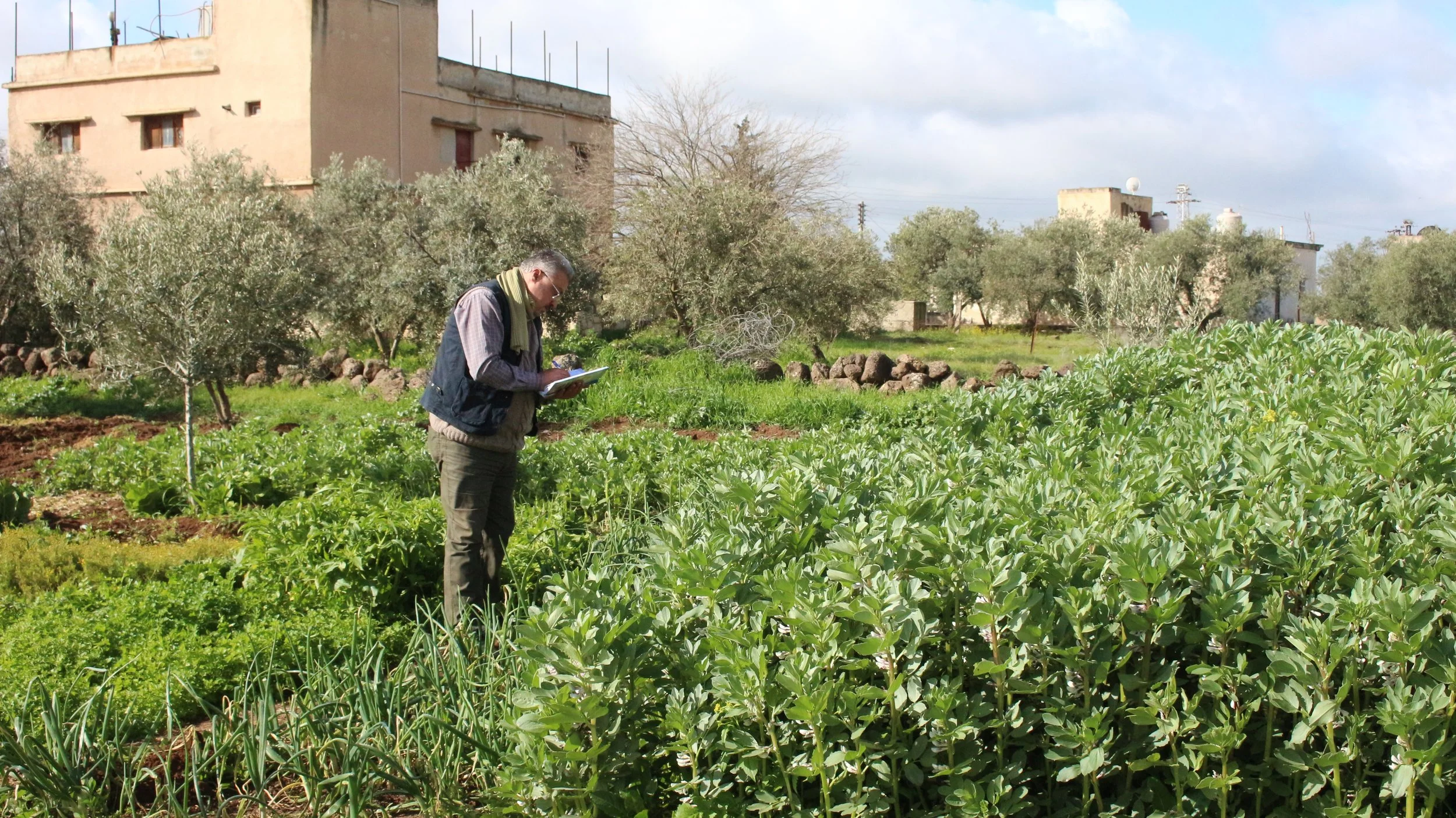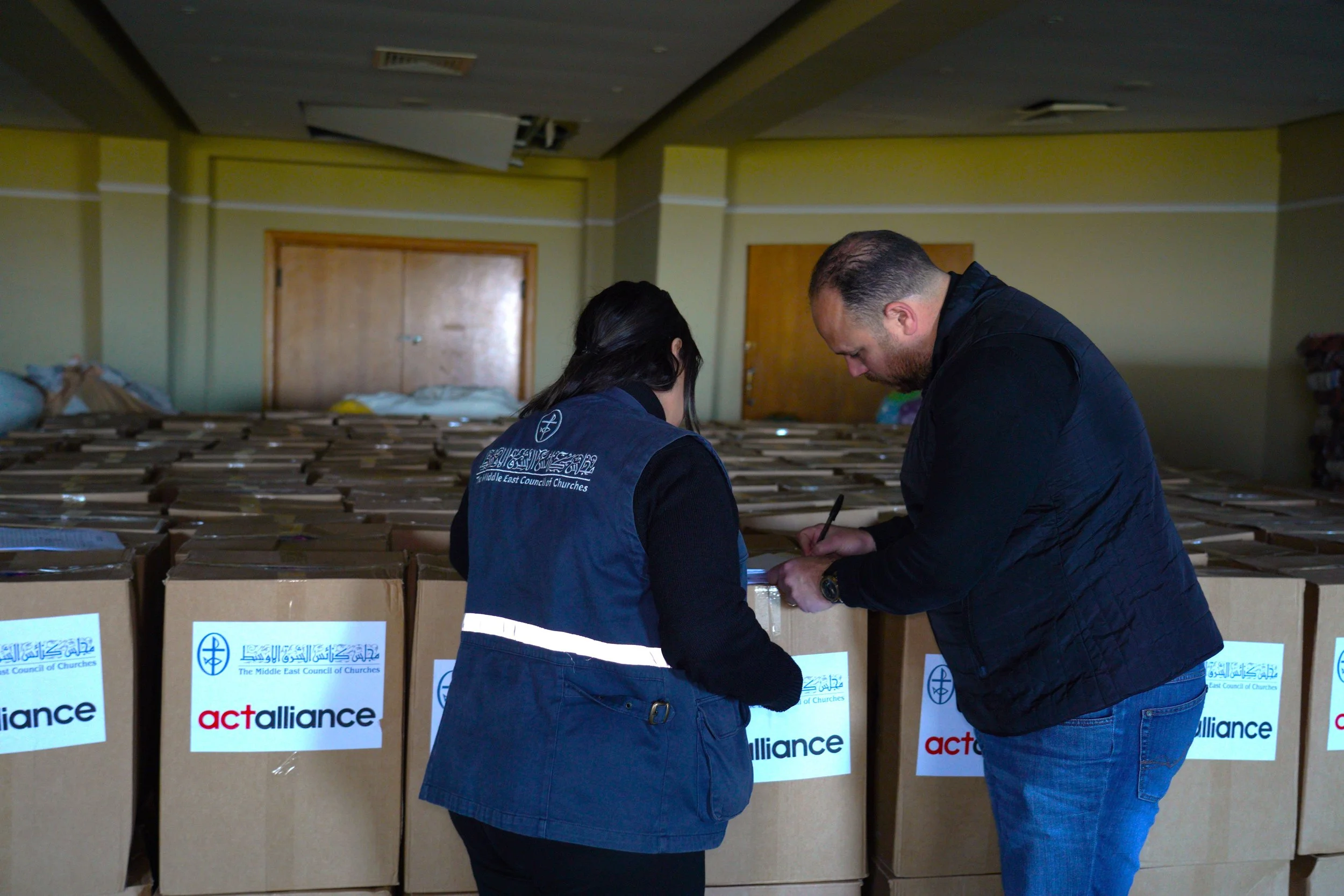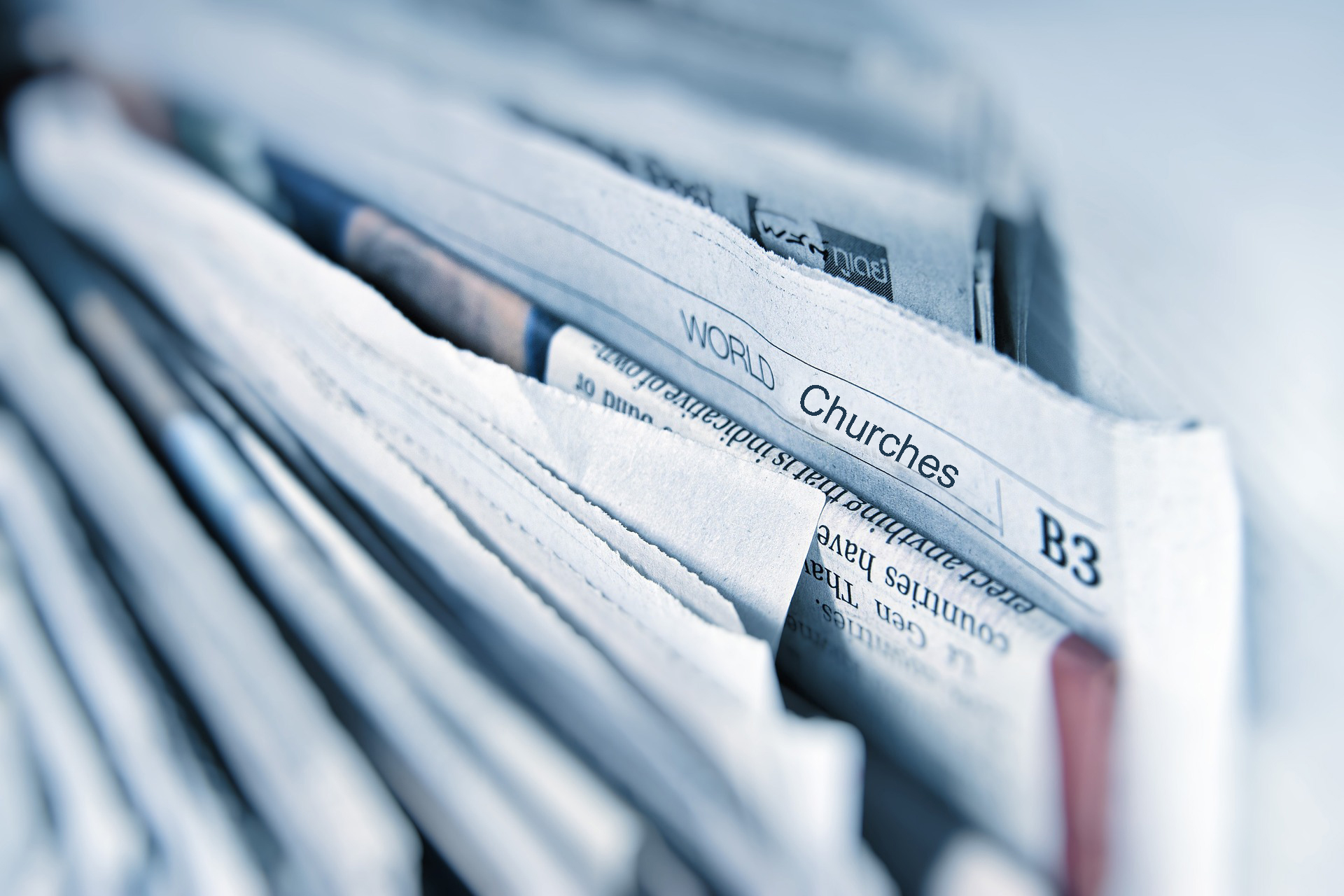
MECC
Vocational Courses in Damascus Help Beneficiaries to Establish Small Businesses
With the rise of unemployment and inflation rates, as well as the increase in the prices of basic needs, the percentage of families living below the poverty line and relying primarily on humanitarian aid has increased. Many young people find themselves unable to build a stable future under these harsh conditions.
In response to these challenges, the Middle East Council of Churches (MECC) continues to support the most vulnerable people by organizing vocational training courses that help participants enter the job market. In addition, MECC provided them with vocational kits as well as skills through business start-up courses, enabling them to establish small businesses that can become sources of income, rather than spending months or even years searching for suitable job opportunities.
In this context, the MECC Diakonia and Social Service Department, Syria’s Office, conducted a vocational training course on growing oyster mushrooms and another course on distilling medicinal herbs and flowers. A total of 30 participants, aged between 25 and 55, benefited from these courses.
Video - A story from Akkar
MECC Supports the Project of St. Francis of Assisi School and Laverna Association
The Middle East Council of Churches (MECC), Diakonia and Social Service Department, Lebanon Office, launched a business development program through supporting small and medium-sized enterprises (SMEs), in the Lebanese Akkar region, in order to help them secure their long-term sustainability, especially amidst the worsening difficult living, social and economic conditions in the country.
In the video, you can find an overview about the St. Francis of Assisi School and the Laverna Association in Menjez - Akkar, in addition to a highlight on the support of the Middle East Council of Churches (MECC) for their project, which has witnessed a new development.
Video - Participants in the Disaster Risk Management and Churches Response Training Stress the Importance of Solidarity and Cooperation Together
Within the training “Disaster Risk Management and Churches Response,” which was implemented by the Middle East Council of Churches (MECC), Diakonia and Social Service Department, in partnership with the Tearfund Organization, participants from various Church families in Lebanon and the Middle East, were able to acquire new skills and deeper knowledge within the framework of helping the Church responding to crises and disasters.
In the video, some of the participants in this training, which was held between 6 and 9 June 2024, in Bethania - Harissa, Lebanon, stress the importance of its sessions and the necessity of cooperation and working together in order to support the neediest people and build a better future.
Video - Objectives of the Training
“Disaster Risk Management and Churches Response”
“Disaster Risk Management and Churches Response” is the title of the training organized by the Middle East Council of Churches (MECC), Diakonia and Social Service Department, in partnership with the Tear Fund organization, aiming at of developing the capabilities of participants working in the Church field, in order to support them in responding in times of crises. It also aimed at providing the attendees with skills that will enable them in turn to train members of their congregations, so they can all help the Church heal the wounds of the most affected people in times of disasters, on various humanitarian, social, health and psychological levels.
Hence, the video sheds light on the objectives of this training, which was held between 6 and 9 June 2024, in Bethania, Harissa - Lebanon.
Video – A Highlight On the Opening Session
Of the “Disaster Risk Management and Churches Response” Training
The Middle East Council of Churches (MECC), Diakonia and Social Service Department, in partnership with the TearFund organization, held a training entitled “Disaster Risk Management and Churches Response”, between 6 and 9 June 2024, in Bethania, Harissa - Lebanon. Participants were an ecumenical group of clergy and lay people from various Church Families in Lebanon and Middle Eastern countries.
In this context, the video presents an overview of this training and its opening session.
Video - Bringing Life Back to the Saint Elias Theater in Aleppo Governorate
His Eminence Bishop Ephraim Maalouli Stresses the Importance of the MECC Support
Following the 6 February 2023 Earthquake
More than a year has passed since the earthquake that struck the North of the Antiochian Levant on 6 February 2023. Hence, the Middle East Council of Churches (MECC) continues its field relief work in Syria in order to heal the wounds of the affected people and seek to rehabilitate the Churches and their affiliated institutions to help them restore their usual activity.
In the video, His Eminence Bishop Ephraim Maalouli, Greek Orthodox Metropolitan of Aleppo, Alexandretta and Dependencies, recalls the phase in which the earthquake occurred and the response of the Saint Elias Theater in Aleppo Governorate to the disaster, describing the support of the Middle East Council of Churches (MECC) and its work in bringing life back to the Theater. As well as, Marine Hanoush, Member of the Greek Orthodox Scout in Aleppo, confirms that MECC contributed in resuming the youth activities at the Saint Elias Theater.
Video - A story from Akkar, Lebanon
New Achievements for Hela Pastry with the Aid of MECC
In light of the worsening economic crises in Lebanon, the Middle East Council of Churches (MECC), Diakonia and Social Service Department, Lebanon’s Office, launched a business development program in the Lebanese Akkar region with the aim of supporting small and medium-sized enterprises (SMEs) and helping them enhance their sustainability and work mechanism.
Hence, the video presents the story of Mrs. Hela, the owner of a pastry and factory in the Beino-Akkar region, who sought to develop her project, as she was able, through the MECC program, to work on increasing her production and thus opening a larger store.
Video - A story from Akkar, Lebanon
Developing Mr. Tony Makhoul’s Cow Farm with the Support of MECC
With the deterioration of difficult living conditions in Lebanon, the Middle East Council of Churches (MECC) seeks to support the Lebanese people in facing their daily challenges at various social and humanitarian levels. Hence, within the framework of the support provided by the Middle East Council of Churches in various Lebanese regions, the MECC Diakonia and Social Service Department, Lebanon’s Office, launched a business development program through supporting small and medium-sized enterprises (SMEs) in the Akkar region, in order to help the owners of these businesses secure their long-term sustainability.
In the video, Mr. Tony Makhoul, owner of a cow farm in Akkar, and his son Tony, describe the mechanism of the farm’s work, in addition to the contribution of the Middle East Council of Churches program in developing this project and thus increasing the rate of production.
There's No Place Like Home
Video - The Middle East Council of Churches Launches a New Homecare Services Platform
Under the slogan “There's No Place Like Home,” the Middle East Council of Churches (MECC) developed and launched a platform dedicated to homecare services in Lebanon, in the field of identifying certified caregivers. The platform provides a user-friendly and convenient search for service seekers, as it connects them with certified caregivers who in turn provide specialized support in a safe and loving environment.
It is worth mentioning that the caregivers certified by the Middle East Council of Churches had undergone a comprehensive and intensive training program of 120 hours with Saint George Hospital University Medical Center (Beirut, Mount Lebanon, and Tripoli) and Khoury General Hospital (Zahle, Lebanon). Therefore, they were equipped with the health skills and necessary knowledge, and hence became prepared to deal with various medical tasks and offer high-quality care.
Video - A story from Akkar, Lebanon
Mr. Joseph Daher Increases Wine Production in His Factory with A Contribution from MECC
With the deterioration of economic and social conditions in Lebanon, the Akkar region was not immune from the crises that cast their shadow over the country. Therefore, the Middle East Council of Churches (MECC), Diakonia and Social Service Department, Lebanon Office, seeks to support the people of Akkar, as well as other Lebanese regions, by implementing a business development program for small and medium-sized enterprises (SMEs) in order to help their owners face the daily challenges and ensure a long-term sustainability for their projects.
In the video, Mr. Joseph Daher, owner of a winery in the Andaket-Akkar region, describes the phases he went through in order to establish his project, and how, through the support of MECC, he was able to increase his production.
Video - A story from Akkar, Lebanon
Father Seraphim Awad Revives His Agricultural Project with the Support of MECC
In a step towards enhancing the livelihoods of the people at the Lebanese Akkar region who, like all other Lebanese, suffer from the difficult living conditions, the Middle East Council of Churches (MECC), Diakonia and Social Service Department, Lebanon Office, launched a business development program through supporting small and medium-sized enterprises (SMEs), and help them secure their long-term sustainability.
In the video, Father Seraphim Awad, the Priest of Sheikh Lar Parish in Akkar, a farmer, agricultural technician and owner of an agricultural project in Akkar, talks about the circumstances he went through in addition to the contribution of the MECC program in developing his project.
Video – MECC South Crisis Response, Lebanon
Restoring Hope Towards Community Resilience
Amidst the difficult security and living conditions that Lebanon is going through as a result of wars and conflicts in the Middle East and the world, the South of Lebanon is witnessing the displacement of its people who have persevered, strove and sacrificed to preserve the heritage of their ancestors, as many families have been displaced to Tire, Sidon, Beirut and other areas to secure a safe haven.
In light of this saddening humanitarian scene, the Middle East Council of Churches (MECC), took the initiative, through the team of the Diakonia and Social Service Department in Lebanon, and with the support of its partners, to hasten in lending a helping hand and delivering what is necessary, so that to help those affected to endure, while preserving their basic human.
Hence, this video sheds light on the response of the Middle East Council of Churches, the Diakonia and Social Service Department, Lebanon’s Office, to the crisis that the South of Lebanon is passing through, in addition to its humanitarian and relief field work to support those affected and heal their wounds.
Postponing the Workshop on Churches in Disasters
In view of the emerging conditions, the Middle East Council of Churches (MECC) announces the postponement of the workshop that its Diakonia and Social Service Department, was going to implement in cooperation with the TearFund organization, on Churches in Disasters, during this month in Lebanon, to a date to be determined later.
Noting that the workshop aims to empower participants and develop their capabilities in order to support them in responding in times of crises. The workshop also aims at providing the participants with skills that will enable them in turn to train members of their congregations, so they can all help the Church heal the wounds of the most affected people in times of disasters, on various humanitarian, social, health and psychological levels.
The Middle East Council of Churches Contributes in Empowering Displaced Women in the South of Lebanon
With the worsening security circumstances in the South of Lebanon due to the ongoing conflicts in the region, its residents are still suffering from many living challenges and psychological pressures that increase daily in the face of an unknown future. In this context, psychological and social support has become necessary, especially for the most vulnerable citizens, in order to alleviate their pain and help them overcome the difficulties surrounding them with hope and determination.
Hence, the Middle East Council of Churches (MECC) continues its relief work in the South of Lebanon with the aim of supporting the internally displaced people in various regions and shelter centers by providing in-kind assistance as well as psychological and social support. Thus, the MECC Diakonia and Social Service Department, Lebanon’s Office, implemented training courses for many displaced women on “self-care and services specialized in protecting women and children”. At the end of the courses, the participants received food and personal kits dedicated for women and children.
Video - MECC Implements a Business Start Up Course in Syria
Mrs. Rosaline Mousa Presents Her Story and How She Benefited from the Course
With the aim of empowering people in Syria and enhancing their capabilities and livelihoods, the Middle East Council of Churches (MECC), Syria’s Office, organized a new Business Start Up Course in Syria, which helped many families secure a source of income and restore hope to their lives. Hence, the video sheds light on the story of Mrs. Rosaline Mousa, one of the course’s beneficiaries, and how the Middle East Council of Churches supported her.
The Middle East Council of Churches Helps the Households in Tibneh to Improve Their Economic Situation by Growing Home - Gardens
In order to alleviate the economic burden on families and enhance their ability to access low-cost food and produce a variety of crops and foods in home gardens, a team from the Diakonia and Social Department, at the Middle East Council of Churches (MECC), provided winter seeds to the most vulnerable families in Tibneh village in Dara’a Governorate – Syria.
Families received winter seed kits which included beans, cabbage, lettuce, radish, parsley, cauliflower, coriander, and onions, as well as fertilizer and tools such as shovel, rake, hoe, plastic hose, brass tap, mulch, and a plastic water tank.
Noting that 190 families, including women-headed households, in Tibneh, benefited from the seed distributions.
An agricultural engineer visited all the beneficiaries twice a month to check on the plants and provide all necessary support and advice to the farmers to ensure good production.
The Middle East Council of Churches Contributes to Supporting More Than 10,000 Displaced People from the South of Lebanon
The escalation occurring in the South, resulted in the displacement of several citizens in various areas of Lebanon. They were forced to abandon their homes, possessions, and sources of livelihood during a time when the economic crisis is still prevailing. Already, the government was not able to provide the right circumstances for ordinary citizens to maintain their livelihood and source of income as many of the Lebanese population have fallen below the poverty line.
According to recent estimates, 80% of the Lebanese live in poverty and 36% below the extreme poverty line. As such, many are not able to acquire the basic necessities that encompass food, medication, heating equipment, and hygiene & dignity supplies etc... Expectations indicate, amidst the urgency of the situation, that between April and September 2024, about 1.14 million people are expected to face high levels of food insecurity and are likely to be in a crisis or emergency phase according to standards set by the Integrated Food Security Classification. As such the issue of the internally displaced people (IDPs) coming from the South, came at an unfavorable time during which humanitarian needs are already shocking.
On the World Day of Social Justice - February 20
The Phenomenon of Violence Is Still Rampant in Our Societies!
MECC Contributes in Reducing It Through Awareness Sessions in Lebanon
They are practices that threaten life, health, and a violation of human rights, requiring urgent protection for the affected people... With these words, the United Nations High Commissioner for Refugees (UNHCR) presents a definition of one of the most social phenomena that threatens the safety of humanity. It lies in the issue of gender-based violence. However, these phrases are not just words, slogans, and ink on paper, but rather describe a bitter reality that expresses the lack of social justice and sounds the alarm, especially with the high rate of violence around the world and in the Middle East.
What are the reason? In fact, there are countless reasons, and directly related to the daily pressures resulting from the difficult living conditions due to the crises and conflicts that cast their shadows all over the world, especially in the Middle East region, which has always suffered from many social challenges. But what are the solutions? How long will violence remain a weapon for many? Questions we must ask to those involved and concerned!
Rehabilitation of Four Schools in Al Sahweh and Al Yadouda in Rural Dara’a
The Diakonia and Social Service Department, at the Middle East Council of Churches (MECC), continues its efforts to provide a safe and healthy environment for students by renovating and rehabilitating schools that have been damaged by war in various Syrian governorates.
In Dara’a, the MECC team of the Diakonia and Social Service Department worked on the rehabilitation of four schools in the villages of Al Sahweh and Al Yadouda.
The rehabilitation activities included the rehabilitation of Water, Sanitation and Hygiene (WASH) infrastructure and pertinent equipment: maintenance of the pipes and water networks, and installation of taps, toilets, windows, doors, tile, ceramic, electric cables, water pumps, and tanks, in addition to completing the required painting work. The entire school was painted, along with the provision of new classrooms benches, fences for every school, and canopies were installed in the courtyards to protect students from the sun and rain.
It is worth mentioning that 987 students benefited from the rehabilitation and also received hygiene kits.
Video - Rehabilitation of Health Facilities in Many Schools in Dara'a Governorate
Within the framework of maintaining a healthy and clean environment in schools, the Middle East Council of Churches (MECC), Diakonia and Social Service Department, Syria’s Office, restored and rehabilitated health facilities in many schools in Dara'a Governorate. The restoration activities included the rehabilitation of Water, Sanitation and Hygiene (WASH) infrastructure, maintenance of the drinking water network, and installation of the other necessary equipment. It contributed to providing clean and safe health facilities away from the spread of diseases. Hence, this video highlights this restoration program that was implemented in Dara’a.


